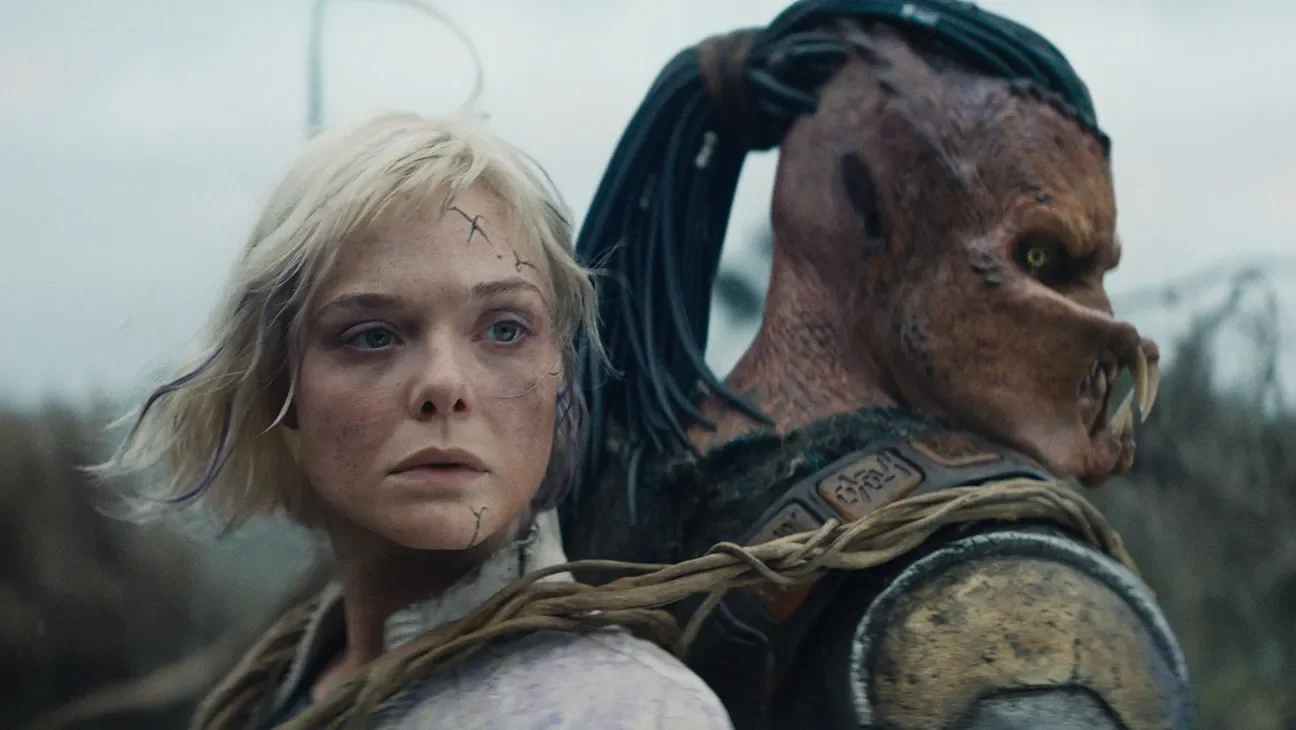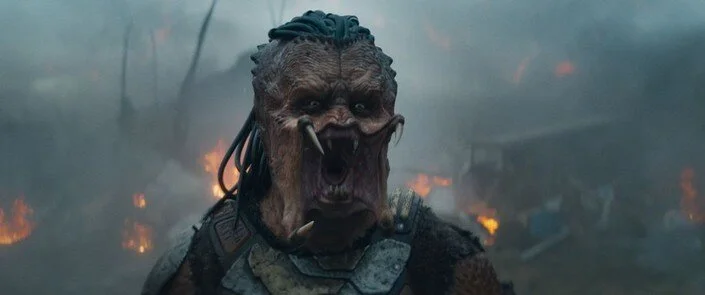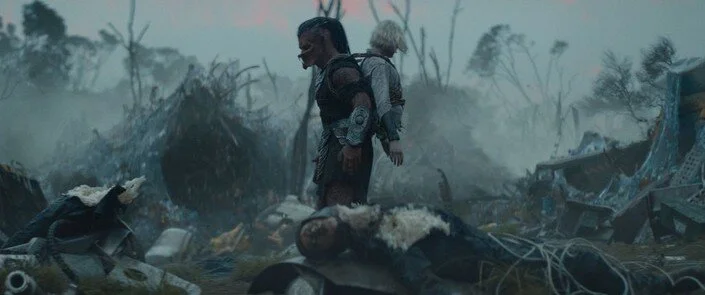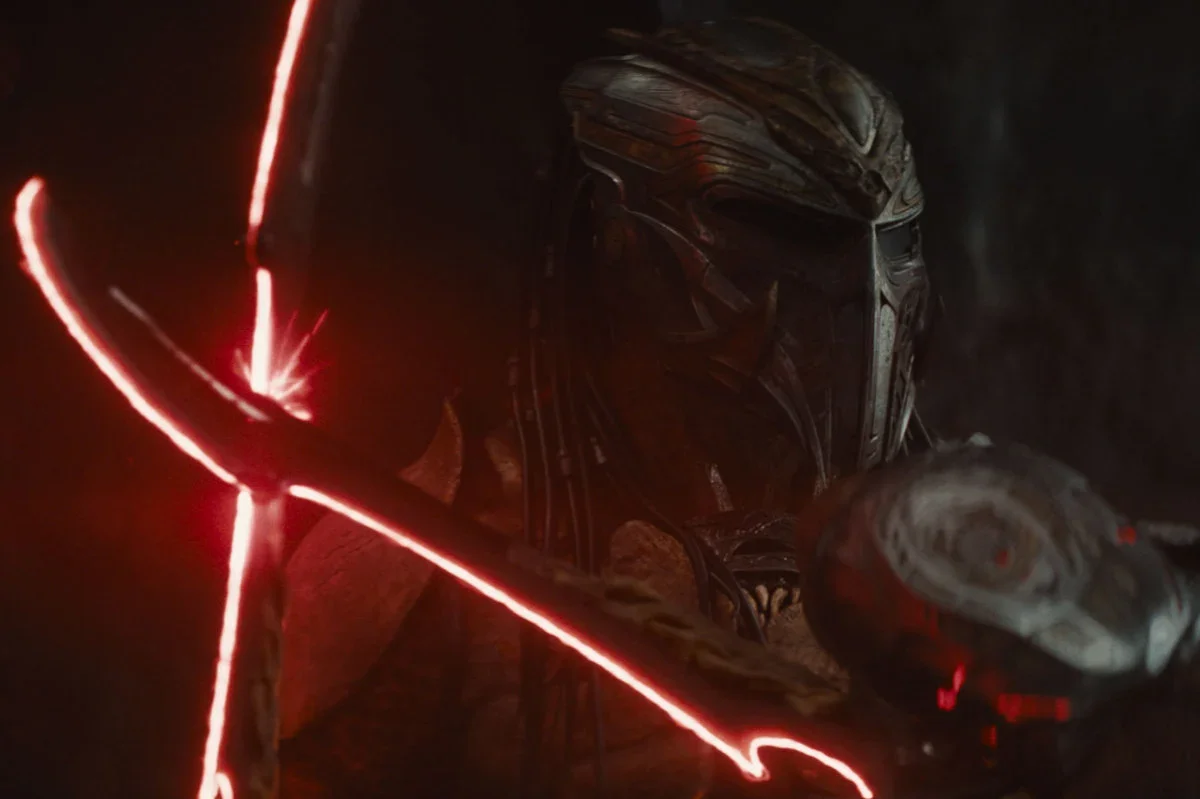Predator: Badlands
The original Predator was the kind of classically self-contained high concept thriller that much of 80s studio filmmaking has become famous for; a retelling of “The Most Dangerous Game” focused around 80s style action heroes with the hunter replaced by an unstoppable, mandibled alien killer armed with all grains of high technology. It was both fascinatingly over the top – a meme-generator before the term was understood – and easily replicated into future installments. The alien just needed to be continuously introduced into different environments prepared to slaughter a new group of unsuspecting tough guys. Like any formula, it faces the reality of diminishing returns as there can only be so many cosmetic changes before the whole thing loses its luster. At some point it becomes either a self-parody or the Predator must win.
Director Dan Trachtenberg (10 Cloverfield Lane, Prey) has quickly come to the same conclusion. Rather than create a blood-drenched torture fest with no survivors he has decided to pivot to a more heroic version of the monster, creating society and culture (albeit one not easily distinguishable from Star Trek’s Klingons) and understanding for them and their blood-soaked quests. The hunt is how they win their place in their society, and for young outcast Dek (Schuster-Kolomatangi), how he will win a place in his family if not his own survival. His task is to go to the most dangerous planet in the galaxy and kill the indestructible beast that lies at the heart of it – a feat no one has ever accomplished before.
It's the smart move, adding some real characterization to what had become a rote cliché. Throwing Dek onto a planet of monsters immediately transforms him into an underdog pushing himself into his own rite of passage against increasingly larger computer-generated monsters and forcing him to reconsider his culture’s views on the other living creatures of the world. An entire film in that mode, with limited to no dialogue, could have been easily sustainable but Trachtenberg immediately saddles (literally) Dek with a partner – the upper half of broken android Thia (Fanning), a Scarecrow-like lost soul searching for her ‘sister’ and her legs … whichever comes first.
Fanning is so charming and human in the role it quickly and completely makes the choice worthwhile as she allows Dek to remain laconic and mysterious while also deploying all exposition and comic relief. She is the anchor Badlands is ultimately built around having to simultaneously juggle physical comedy, pathos, genuine emotional pain and – in the dual role of her sister android Tessa – pitiless evil. She also gives Badlands an easy way out of a sticky corner. Thia and her ilk are a group of exploring androids from the Alien franchises villainous Weyland-Yutani company, still exploring the galaxy for alien lifeforms to weaponize and coincidentally giving Dek an army of human-looking villains to slaughter without the attendant blood or questions about who to root for.
(It also shows the series following Alien in its focus on AI as the true alien intelligence to be feared).
There are losses as much as gains in the approach; they mystery of the monsters takes a forever backseat in favor of their coolness and options to root for them. It also must be asked how long and far they can be pushed in this direction before uncomfortable questions (and perhaps real drama) can be found.
But in the moment none of that matters. What matters is a fresh perspective invigorating an old idea, even if only for a little while. Between Fanning’s commitment and Trachtenberg’s imagination, Predator is alive again. Let’s see how long it can remain that way.




